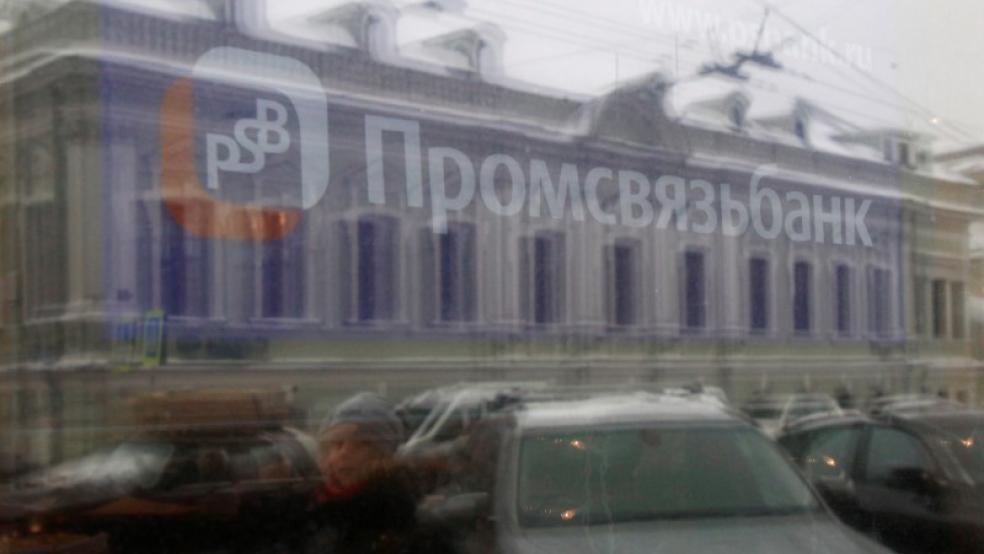MOSCOW (Reuters) - Russia's central bank may have to sink up to $3.4 billion into its bailout on Friday of Promsvyazbank, the country's 10th largest private lender, the third such rescue this year.
The bailouts mark the biggest challenge to Russia's financial sector since a financial crisis 20 years ago and show how the country and its banks are grappling with the economic impact of lower oil prices and Western sanctions.Promsvyazbank's (PSB) rescue follows the central bank bailout in August of Otkritie, once the country's largest private bank, and later B&N Bank.The central bank has increased its estimate for the cost of the earlier bailouts to 820 billion rubles ($14 billion). Vasily Pozdyshev, a deputy governor with the central bank, said on Friday that the bailout of PSB will require between 100 billion rubles and 200 billion rubles ($1.7-$3.4 billion), based on a preliminary estimate. The central bank plans to honor all PSB obligations apart from subordinated debt, estimated at around 100 billion rubles, Pozdyshev said. He said writing that off could put the rescue amount closer to the lower range of the estimate. The latest rescue followed late-night talks, when the central bank presented the troubled bank with an ultimatum: find 100 billion rubles of extra capital or be bailed out.People with direct knowledge of the matter said Promsvyazbank's co-owner and chairman, Dmitry Ananyev, and central bank governor Elvira Nabiullina, agreed on a rescue at a late-night meeting.Dmitry Ananyev and his brother, Alexei, who together control just over 50 percent of the bank, said the bank's serious difficulties had prompted them to ask for state support."Over a prolonged period of time the regulator was examining our assets, which resulted in a request for additional provisions and, as a result, the temporary administration was introduced," PSB said in a statement.FINANCING THE OWNERSPozdyshev said PSB had a healthy business model before the global financial crisis of 2008 drove up non-performing loans.The bank's owners shifted assets that were collateral for those loans to other parts of their empire. Those assets created a drag on the other parts of the owners' holding, so Promsvyazbank had to pour more money into them, Pozdyshev said."So from a market-focused bank it turned into a lender which financed its owners," Pozdyshev said. "The amount of loans issued to the owners exceeds the bank's capital."Pozdyshev said the loans to PSB's owners exceed 150 billion rubles. The bank had set aside additional provisions worth 104 billion rubles this week, which knocked the capital down to 52 billion rubles. PSB needs to set aside another 150 billion rubles in provisions, Pozdyshev said. Following the bailout, the Ananyevs have to reduce their holdings in Vozrozhdenie BankRussia hit by $3.4 billion Promsvyazbank bailout in latest bank blow

Sergei Karpukhin



